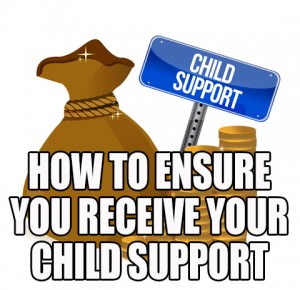
What is the Child Support Standards Act?
The Child Support Standards Act sets forth guidelines which the courts on Long Island, NY must follow when determining child support. Therefore, while a court may have the authority to look to individual factors and circumstances to determine child custody, it does not have the authority to modify the amount of child support which must be paid. The amount of support the non-custodial parent is required to pay weekly or monthly depends upon the number of children for which it is meant to support; for example, if the child support is for one child, the non-custodial parent will have to pay 17% of his or her adjusted gross income, while he or she will have to pay 31% of his or her adjusted gross income for four children. The non-custodial parent will also be responsible for a percentage of the unemancipated children’s medical, dental, educational, and extracurricular expenses. These costs can be divided equally between both parents, with each paying 50% of the expenses, or calculated dependent upon what percentage of the parties’ total income each earns and then paying that respective amount.
How is Child Support Collected on Long Island?
When filing an order for child support, your Long Island Divorce Attorney should alert you to the line on the form which gives you the option to have support collected through the Support Collection Unit of the Child Support Enforcement Unit. Both Nassau County and Suffolk County as well as all boroughs of New York City have individual Support Collection Units to handle cases located within its respective geographical boundaries. If you elect to receive your child support payments through the Child Support Enforcement Unit, it will keep track of payments due to you, including amount and frequency. The Child Support Enforcement Unit has many avenues available to it which allow it to obtain child support payments before funds even reach the hands of the non-custodial parent.
What Methods of Collection are Available to the Child Support Enforcement Unit?
First, and likely the most common method employed by the Child Support Enforcement Unit is income execution. In these instances, the non-custodial parent’s employer will be ordered to withhold the appropriate amount of child support from the non-custodial parent’s paychecks. If the non-custodial parent is unemployed and receiving unemployment benefits, the Child Support Enforcement Unit has the power to levy and intercept these funds as well. Additionally, the Child Support Enforcement Unit can levy any amounts owed to the non-custodial parent such as income tax refunds or anything he or she may have won by playing the lottery.
However, not all methods involve levying funds before they reach the hands of the non-custodial parent. The Child Support Enforcement Unit also has the power to suspend the non-custodial parent’s driver’s license, deny them the ability to apply for a United States passport, or place a lien against any property they may own.
What Does This Mean for Me?
If you have concerns that your spouse will fail to timely and adequately pay court ordered child support, it would be wise to discuss the benefits of the Child Support Enforcement Unit with your Long Island Divorce Attorney. While a divorce by its nature a stressful experience, knowing you will not have to worry about actively enforcing child support payments down the road can relieve some of the stress and ensure your children receive the support they deserve.
Need Help with Child Support Payments on Long Island? We Can Help
The experienced and compassionate Long Island divorce lawyers at Robert E. Hornberger, Esq., PC can help ensure you and your children receive the Child Support they deserve. Contact us today at 631-923-1910 or fill out the short form on this page for a complimentary consultation.